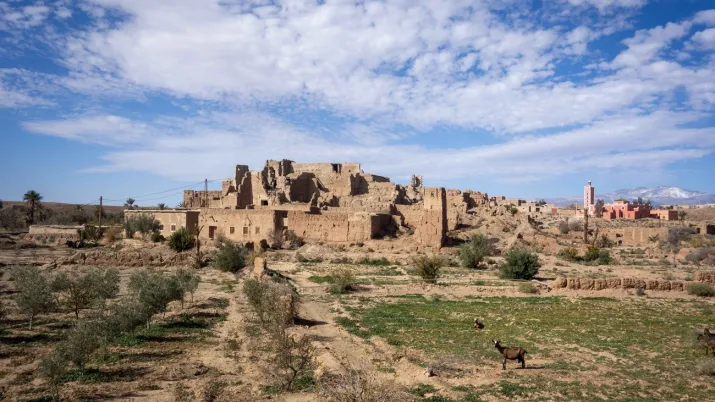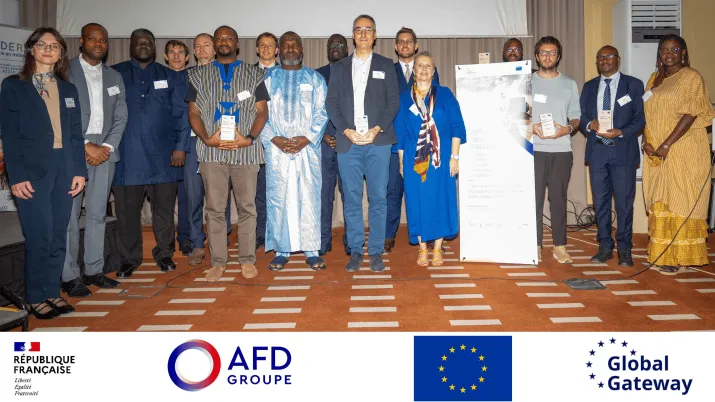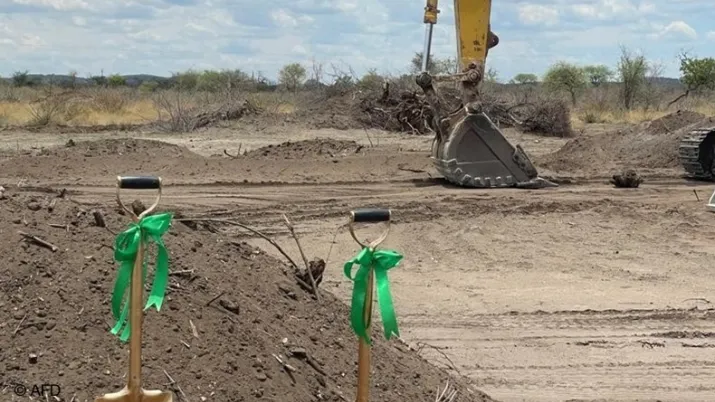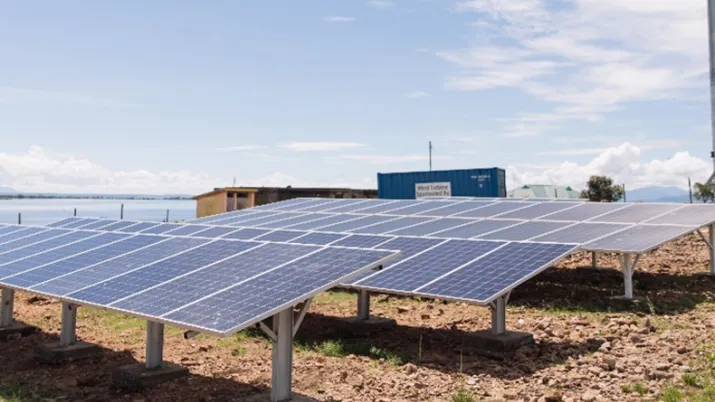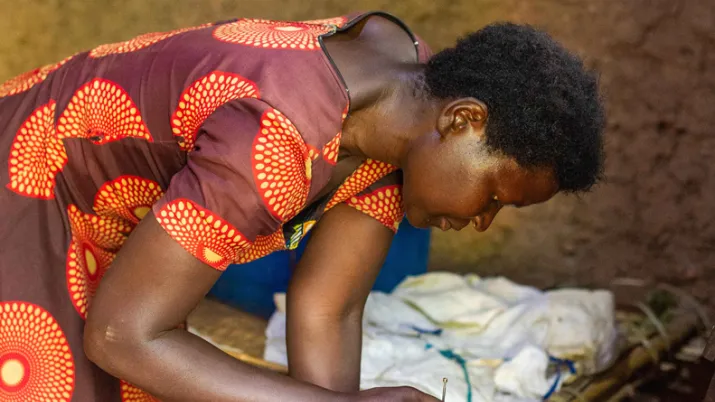Share the page
Energy
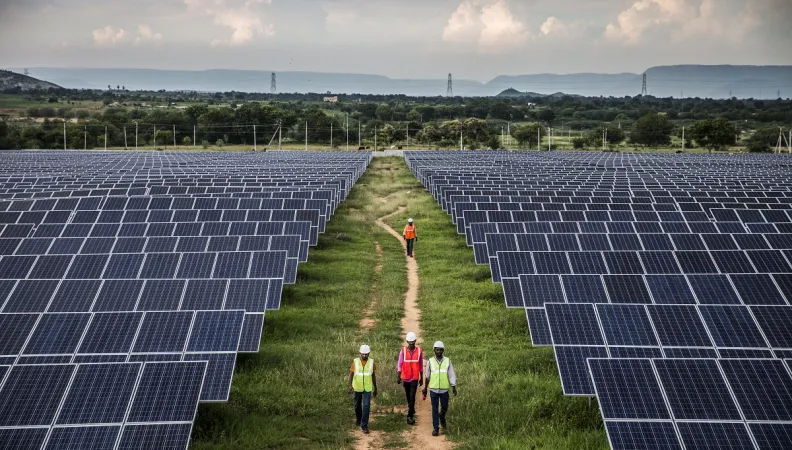
Our commitment
800 million people in the world do not have access to electricity. This problem of access impacts the health and education of populations and affects economic competitiveness by inhibiting development in these countries.
In order to promote the fairest and most sustainable lifestyles and production methods, AFD supports its partners in their energy transition through different forms of funding, adapted technical support and a wide partnership network.
What energy for tomorrow's world?
Our approach
Today, the energy transition is underway in both developing and developed countries. Boosted by technological developments, it offers economic, social and environmental opportunities and is an important driver of development.
AFD Group addresses the energy issue in a global manner by improving access to electricity and deploying low-carbon energy at every level. With €2 billion dedicated to this sector in 2022, AFD Group backs projects which meet no.7 of the UN’s Sustainable Development Goals and allow States to respect their climate commitments.
Convinced that the energy transition can be an opportunity for all, AFD Group is mobilizing all its public, private and non-state partners in the pursuit of a single objective: for everyone to have access to efficient and low-carbon energy services.
AFD and the energy transition: towards efficient and low-carbon energy services that are accessible to all
Tripling renewable energy, doubling energy efficiency, and reducing fossil fuel demand by 25% by 2030 — this is the challenge we must take on to limit global warming to +1.5°C.
To actively contribute to this ambitious goal, the AFD Group supports all stakeholders — both public and private — in the energy sector as they advance their energy transition.
Discover the AFD Group’s solutions in the downloadable brochure.
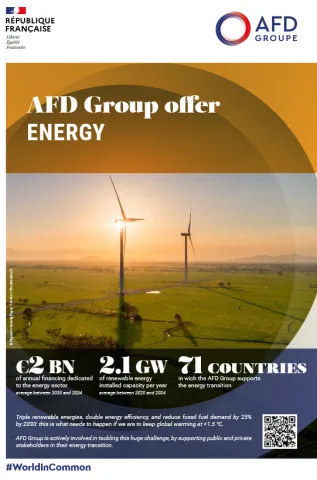
800 million people in the world do not have access to electricity and 50% of them live in sub-Saharan Africa. 2.8 billion people use traditional fuels (wood, charcoal, animal dung, etc.) for cooking and heating. This leads to indoor air pollution which causes the premature death of 4 million people per year and accounts for half of Africa’s annual CO2 emissions.
To increase access to reliable, clean and low-carbon energy services, AFD helps private and public actors increase the density of national electricity networks. This is the case in the peri-urban areas of Maputo and Pemba in Mozambique and the southern region of Zambia, where we are funding the strengthening of electricity distribution networks.
To provide electricity in very isolated rural areas, we encourage the use of decentralized solar solutions such as solar kits and mini-grids that use renewable energy. In Kenya, we are supporting a project for the integration of wind and solar electricity in small-scale private electricity networks.
Global energy intensity, which is the ratio between energy consumption and GDP, is already decreasing. Investments made over the past few years are bearing their fruit. Public and private entities must continue in this direction and carry on encouraging energy savings.
This is why AFD is promoting energy-efficient systems in the main sectors of energy consumption: construction, transport, industry and agriculture. In Jodhpur, India, 45,000 low-energy lightbulbs have been installed, preventing the emission of 16,000 tons of CO2 equivalent per year. In China, our support for the energy renovation of public buildings in the City of Wuhan limits greenhouse gas emissions.
We are also supporting the development of efficient, low-energy production sectors by backing small and medium-sized enterprises to allow them to become equipped with energy-efficient equipment. This is the case in India, for example, where we funded sustainable investments by SMES, and in China, where we are supporting banks in the allocation of loans for projects favoring the use of renewable energy.
Lastly, we are participating in the implementation of programs to monitor demand with electricity operators, with the aim of smoothing demand and optimizing the programming of investment in production.
Countries in Africa are badly affected by problems of access to energy, despite the fact they have large resources in geothermal, biomass, solar and wind power. Moreover, 10% of the world’s potential hydropower is not exploited.
ADF supports the development of renewable energy in these countries to fulfil their energy potential. We help mature sectors such as hydroelectricity, photovoltaic and wind power be deployed on a large scale. We also support more innovative sectors such as marine power, floating solar and offshore wind power. In Morocco, we are supporting the development of the largest thermodynamic solar complex in the country. In Benin, which imports over three quarters of its electricity, we are participating in the construction of a new photovoltaic plant which promises to diversify the country’s energy supply.
To allow the large-scale dissemination of green energy, AFD is investing in the expansion and modernization of electrical networks. For example, we are supporting the modernization of networks in Ecuador and the automation of control centers in the delta region in Egypt. We are also supporting the regional integration of power systems through the construction of electrical interconnections, such as the Kenya-Ethiopia interconnection. Lastly, technological innovation in terms of energy management and storage is one of our priorities.
Backing public policies
When the entire economy of a country relies on fossil fuel, it becomes essential to plan and reorganize the energy sector. AFD helps governments keep their climate commitments and provides them with technical and financial support for the diversification of the energy mix. In Mexico, we are supporting the policy of energy transition which aims to respect the commitments made in the Paris Agreement. We are also accompanying the Georgian government in its reform of the energy sector to improve efficiency.
Capacity building
Enhancing the capacities of actors, in particular electricity operators, is essential to create the necessary conditions for successful energy transition. AFD contributes by mobilizing French and international partnerships and offering expert advice and funding to its beneficiaries. In Guinea, for example, one of the elements of the project for the reorganization of the electrical sector, which AFD supports, concerns capacity building. In Nigeria, we are contributing to the upscaling of the National Power Training Institute of Nigeria (NAPTIN). In this way, we are involved in the development of skills and the improvement of performance.
Innovation and the production of knowledge
Innovation is one of the main factors in the emergence of the energy transition. Technological and digital innovations constantly offer new prospects for sustainable development and greater energy efficiency. In order to promote this, AFD implements new offers of funding, calls for projects and pilot actions.
Reconciling social progress with sustainability To bring
The concept of “just transition” came about from the realization of the link between the environmental and social crises. It takes into account the interests of workers and disadvantaged people in the processes of decarbonizing economies, so that the transition to decarbonized energy sources is not in conflict with improvement in people’s well-being. In partnership with local stakeholders (States, public and private companies, financial institutions, NGOs, and civil society), AFD Group is putting to work its full range of financial tools to promote an inclusive, equitable, and sustainable energy transition.
On the ground
Below, you’ll find projects, news, and publications related to this topic — all in one place.
News & events
AFD and PLN strengthen their cooperation to accelerate Indonesia’s energy transition
Published on December 8, 2025
Digital Energy Challenge 2025: Five projects recognized in Dakar
Published on November 27, 2025
Related topics
Key figures
-
2.5 billion euros committed by AFD Group to 85 projects in 2024
-
361,000 additional people have access to sustainable electricity services (energy projects completed in 2024)
-
223 projects in progress as of 31 December 2024

